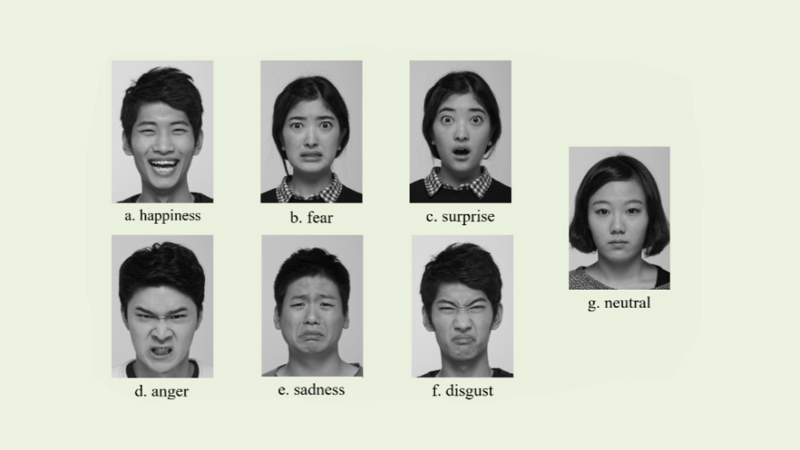Mental health disorders are those unhealthy influencers of your mind who persuade you to change your thinking patterns negatively. These unhealthy influencers can cause serious diseases. One of the major groups of non-communicable diseases comprises mental health disorders. These diseases directly affect the emotions, behaviors, or relationships of a person, often leading to distress and impairment in daily life. As per an estimation, almost 400-500 million people in the world are affected by mental health conditions. Mental health challenges are not signs of weakness or personal failure but they can affect anyone, regardless of age, gender, or socioeconomic background.
Mental health disorders are broad terms that encompass a wide range of conditions that affect how individuals think, feel, and behave. These disorders can manifest in various ways, from mild and temporary to severe and chronic. The exact causes of mental health disorders are not fully understood, but it’s believed to be a combination of genetic and environmental factors. There are multiple ways to help your mental health and combat these disorders by adopting appropriate defensive measures.
Types of Mental Health Disorders

Mental health disorders contain a variety of ranges, having different impacts on the human mind. Mindcafe India provides a holistic range of ‘Mind Treats’ that help you overcome different types of mental health problems. Some of the most common mental health disorders include:
- Anxiety Disorders: Anxiety disorders are characterized by excessive worry, nervousness, and fear. Anxiety disorders can manifest in various forms, including generalized anxiety disorder, panic disorder, social anxiety disorder, and specific phobias.
- Mood Disorders: Mood disorders affect a person’s emotional state. They are characterized by persistent feelings of sadness or elation. The common examples of the same are major depressive disorder and bipolar disorder.
- Psychotic Disorders: These are characterized by a loss of contact with reality. Psychotic disorders involve distorted perceptions and thoughts, such as hallucinations and delusions. Schizophrenia is a well-known example of a psychotic disorder.
- Eating Disorders: Involving abnormal eating habits and unhealthy preoccupation with weight or body image. Eating disorders can lead to severe health complications. Anorexia nervosa, bulimia nervosa, and binge eating disorder are common examples of the same.
- Personality Disorders: Enduring patterns of thinking, feeling, and behaving that deviate significantly from societal norms and cause significant distress or impairment. Personality disorders can affect an individual’s relationships and overall functioning.
Early Detection and Intervention

Mental health disorders can be prevented by their early detection. It is important to intervene to effectively manage mental health disorders. Recognizing signs and symptoms in the early stage can lead to timely intervention and improved treatment outcomes.
Common Signs and Symptoms of Mental Health Disorders
- Changes in mood, including persistent sadness, irritability, or anxiety
- Changes in behavior, such as social withdrawal, impulsivity, or risk-taking
- Difficulty concentrating, remembering, or making decisions
- Sleep disturbances, including insomnia or excessive sleeping
- Changes in appetite or weight
- Physical symptoms, such as headaches, fatigue, or digestive problems
It is important to seek professional help for mental health disorders if you are struggling with them. Early intervention can make a significant difference in managing your symptoms and improving your overall well-being.
Root Level Solution for Mental Health

Addressing mental health disorders at their root requires a comprehensive approach that goes beyond symptom management. Understanding the underlying causes of mental health challenges can empower individuals to make positive changes that promote long-term well-being.
- Trauma Resolution: Traumatic experiences can have a profound impact on mental health, leading to conditions like PTSD and anxiety disorders. Addressing trauma through therapies like EMDR (Eye Movement Desensitization and Reprocessing) and trauma-focused CBT can help individuals heal and reduce the impact of traumatic events.
- Substance Abuse Treatment: Substance abuse can worsen mental health disorders and create a vicious cycle of addiction and mental distress. Seeking treatment for substance abuse is crucial for breaking this cycle and improving overall health.
- Stress Management: Chronic stress can exacerbate mental health symptoms. Implementing stress management techniques such as mindfulness meditation, yoga, and deep breathing exercises can help individuals cope with stress and improve their overall well-being.
- Social Determinants of Health: Social factors such as poverty, discrimination, and lack of access to healthcare can significantly impact mental health. Addressing these social determinants of health is essential for promoting mental health equity and improving overall well-being.
Addressing mental health disorders effectively requires acknowledging the need for help and taking the necessary steps to seek professional support. While seeking help may seem daunting, it’s crucial for breaking down stigma and prioritizing mental well-being.
Solution for Mental Health Problems
There are multiple ways to help your mental health and wellbeing to lead a peaceful lifestyle. It is important to acknowledge the problems you are facing and adopt a solution-oriented approach. Although, it might seem difficult at first. Seeking solution for mental health problems is not a one-shot remedy but a process that treats you from the root. Here are some remedies that you can adopt to lead a better lifestyle:
- Early Intervention: Early detection and intervention are crucial for managing mental health disorders. Seeking professional help for mental health disorders can lead to timely diagnosis, treatment, and improved outcomes.
- Evidence-Based Therapies: Mental health professionals have access to a range of evidence-based therapies, such as CBT and IPT, which have proven effective in managing various mental health conditions.
- Personalized Treatment Plans: Mental health professionals can develop personalized treatment plans tailored to an individual’s unique needs, preferences, and circumstances.
- Support and Guidance: Mental health professionals provide a safe and supportive space to discuss concerns, develop coping mechanisms, and navigate challenges related to mental health disorders.
- Improved Quality of Life: Addressing mental health disorders can significantly improve an individual’s overall quality of life, allowing them to function better in their personal, professional, and social relationships.
The Significance of Professional Support
Mental health disorders, like any other health condition, require professional attention and care. Seeking help is not a sign of weakness or inadequacy; it is a courageous step towards healing, growth, and a better quality of life.
- Accurate Diagnosis and Treatment: Mental health professionals possess the expertise to accurately diagnose mental health conditions, ensuring that individuals receive the appropriate treatment for their specific needs.
- Personalized Treatment Plans: Mental health professionals create personalized treatment plans tailored to an individual’s unique circumstances, preferences, and goals which promotes the root level solution for mental health disorders. These plans may include therapy, medication, or a combination of both.
- Effective Coping Mechanisms: Mental health professionals teach individuals effective coping mechanisms to manage their symptoms, navigate challenges, and improve their overall well-being.
- Ongoing Support and Guidance: Mental health professionals provide ongoing support and guidance throughout the treatment process, offering a safe and supportive space to discuss concerns, process emotions, and celebrate progress.
- Improved Quality of Life: Addressing mental health disorders through professional help can significantly enhance an individual’s quality of life, enabling them to thrive in their personal, professional, and social relationships.
Overcome Stigma and Seek Support
Seeking professional help for mental health disorders is often hindered by stigma and misconceptions. It’s important to remember that mental health disorders are common and treatable. Just as we seek help for physical ailments, seeking help for mental health concerns is a sign of strength and self-care. Professional help is not a sign of weakness or inadequacy; it’s a courageous step toward taking charge of one’s mental well-being. Mental health professionals are there to provide support, guidance, and effective treatment to help individuals manage their symptoms, improve their coping skills, and lead fulfilling lives.
Mindcafe India is a platform where you will get a number of resources designed by some of the best mental health experts across the country and abroad and seek remedies for your concerns. You can also get assistance from experts and community members by sharing your thoughts anonymously on ‘Mind Feeds.’ Here, you will get root level solution for mental health problems which will help you understand the root cause of your problems and heal it at the initial stage by adopting appropriate measures.
Mental health disorders are common and can affect anyone, regardless of age, gender, or background. Understanding the nature of these disorders, their causes, and the importance of seeking professional help for mental health disorders is crucial for promoting mental well-being and breaking down stigma.
A holistic approach that combines professional support, healthy lifestyle choices, mind-body practices, social connections, and self-care practices is essential for effectively managing mental health disorders. Early detection and root level solution for mental health play significant roles in improving treatment outcomes and overall quality of life.
Remember, seeking help is a sign of strength, not weakness. By acknowledging the need for support and taking the necessary steps, individuals can embark on a journey towards renewed mental well-being and a life filled with fulfillment and purpose.



